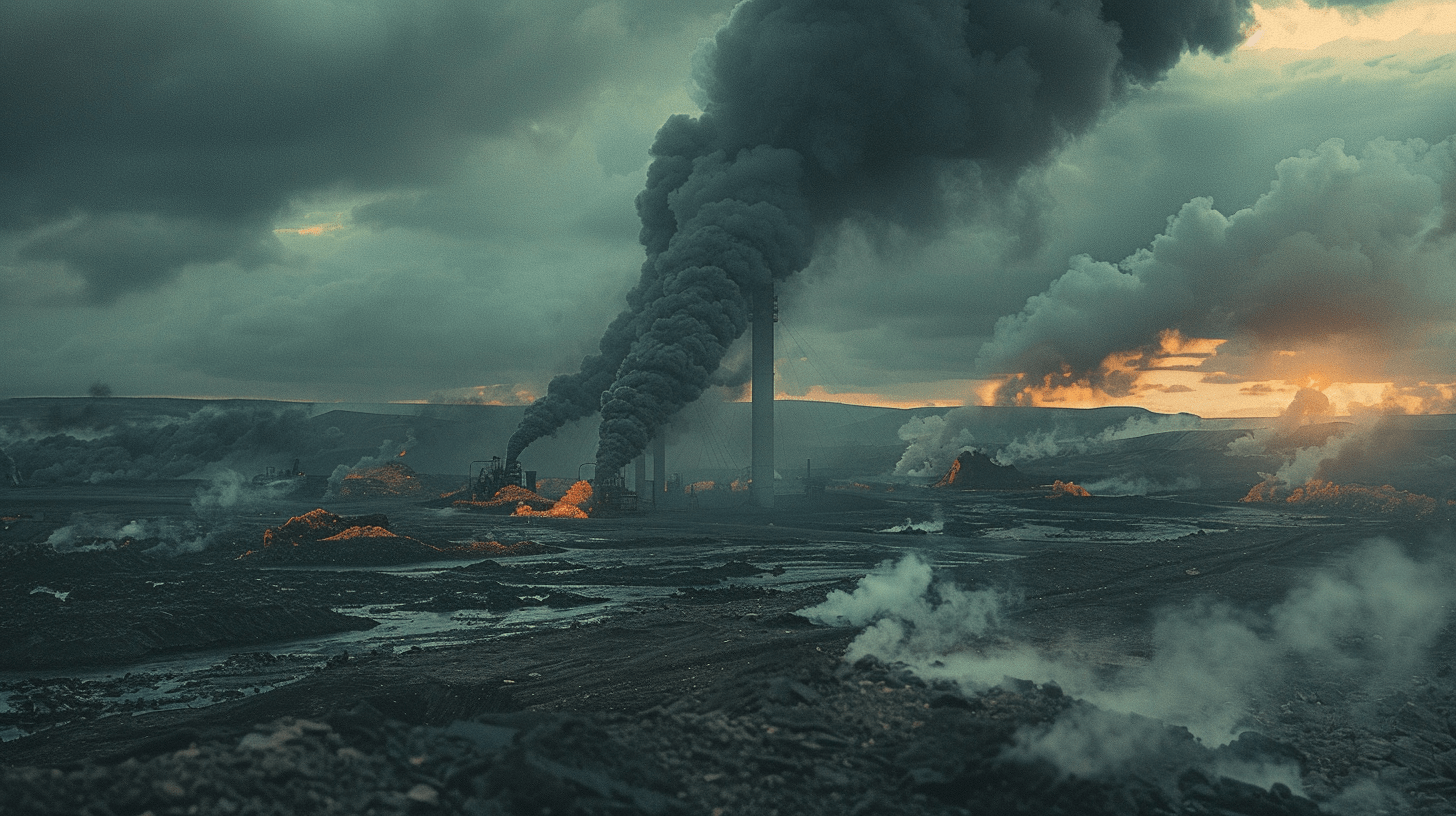Fossil Fuels
This challenge explores fossil fuels, their historical significance, environmental impact, and role in climate change while offering actionable strategies to transition towards sustainable energy and reduce global dependency.

How Fossil Fuels Shaped Our World
Fossil fuels are more than just a source of energy; they are the foundation upon which modern society was built. From powering the Industrial Revolution to fueling economic growth, coal, oil, and natural gas have played an instrumental role in transforming the way we live, work, and connect. In this lesson, you will explore how fossil fuels catalyzed technological advancements, shaped global industries, and influenced regional development, leaving an indelible mark on human history and our planet.
The Role of Fossil Fuels in Industrialization
The Industrial Revolution of the late 18th and 19th centuries marked a turning point in history, and fossil fuels were at its heart. Coal powered steam engines, which drove factories, ships, and trains, enabling mass production and long-distance transportation for the first time. This newfound efficiency revolutionized industries like textiles, mining, and agriculture, creating unprecedented economic growth.
By the mid-19th century, oil emerged as a critical resource. Its use as a fuel for lamps and later for combustion engines made it indispensable during the Second Industrial Revolution. The introduction of oil-powered machinery and vehicles transformed industries and laid the groundwork for globalization.
Even today, the energy-intensive processes introduced during this era—such as steel production and chemical manufacturing—remain heavily dependent on fossil fuels, highlighting their enduring legacy.

Fossil Fuels and the Transportation Revolution
Transportation is one of the sectors most profoundly shaped by fossil fuels. The invention of internal combustion engines in the late 19th century revolutionized mobility. By the 20th century:
- Cars fueled by oil-derived gasoline became accessible to millions. In the 1950s, global car ownership exploded, with countries like the United States leading the way. Today, over 1.4 billion vehicles operate globally, with fossil fuels powering the vast majority.
- Shipping became the backbone of global trade, using oil-powered vessels to move goods across continents. According to the International Maritime Organization, over 80% of global trade is conducted by sea, making oil essential to the modern economy.
- Aviation, powered exclusively by fossil fuels, has connected the world like never before. In 2019, airlines carried 4.5 billion passengers worldwide, with jet fuel accounting for nearly 2% of global CO2 emissions.
Fossil fuels not only made transportation faster and more efficient but also created a global economy where goods and services could be exchanged across vast distances.
Energy for Modern Lifestyles
Fossil fuels provide more than just transportation—they power nearly every aspect of modern life. From electricity to consumer products, their influence is deeply embedded:
- Electricity Generation: As of 2023, coal, oil, and natural gas still account for about 60% of global electricity production, despite growing investments in renewables. Countries like India and South Africa rely heavily on coal, while natural gas dominates in regions like North America and Europe.
- Consumer Goods: Fossil fuels are the foundation for plastics, fertilizers, and synthetic fabrics. Nearly every household product—from packaging to electronics—owes its existence to petrochemicals derived from oil and gas.
- Urbanization: The rise of cities was made possible by fossil fuel-powered infrastructure, from construction machinery to heating systems.
These advancements, while improving quality of life, have also tied modern lifestyles to an unsustainable level of fossil fuel consumption.
Regional Perspectives on Fossil Fuel Use
The influence of fossil fuels varies across regions, reflecting differences in resource availability and economic priorities.
- In the Middle East, oil wealth has driven rapid modernization, with countries like Saudi Arabia and the UAE transforming into economic hubs. However, this reliance also creates economic vulnerabilities tied to fluctuating oil prices.
- China and India, two of the largest coal consumers, have relied on this resource to fuel industrial growth, lifting millions out of poverty but also contributing to significant air pollution and greenhouse gas emissions.
- In contrast, Norway, a major oil producer, has reinvested fossil fuel revenues into a sovereign wealth fund to secure long-term prosperity while leading efforts in renewable energy adoption.
- In Sub-Saharan Africa, a lack of access to fossil fuels limits development. Nearly 600 million people lack access to electricity, highlighting disparities in energy use and availability.
These examples illustrate how fossil fuels have enabled both progress and inequity, depending on regional access and use.
Key Takeaways
- Fossil fuels powered the Industrial Revolution and continue to drive key industries.
- Coal, oil, and natural gas revolutionized transportation, trade, and global connectivity.
- Regional reliance on fossil fuels varies, shaping economies and development differently.
- Despite growing efforts to transition to renewables, fossil fuels still dominate the global energy landscape.
By understanding how fossil fuels have shaped the modern world, you can better appreciate the challenges and opportunities in transitioning toward a more sustainable future.